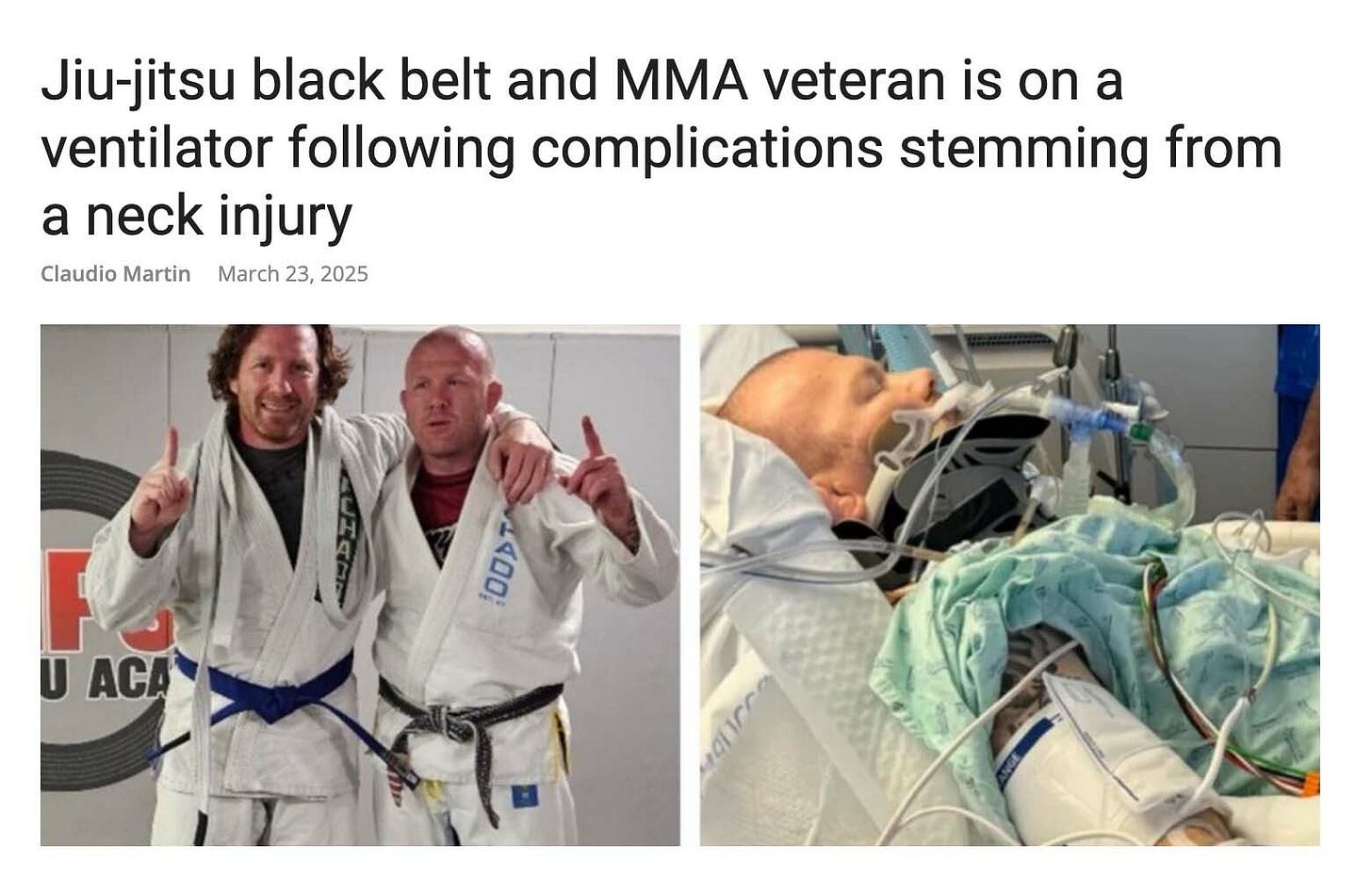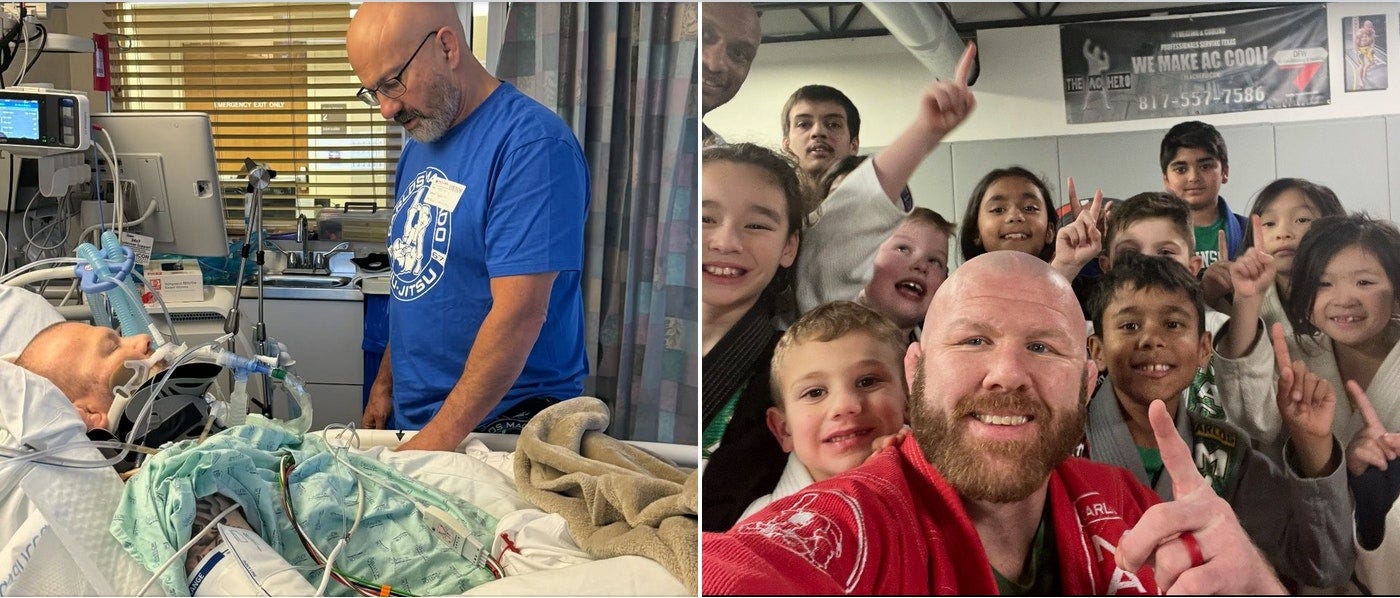I’ve been sitting with this one for a while. Maybe because I’ve been living it.
As some of you know—or maybe don’t—I’ve been dealing with CTE-like symptoms and severe cervical spine degeneration. Some days, the brain fog is relentless. Other days, it’s the pain that wraps around my head and neck like a vice. But what’s been gnawing at me more than anything is this:
It didn’t have to be this way.
Much of my condition traces back to the mat—Muay Thai neck ties, hard rounds in jiu-jitsu, and years of rolling with people far bigger and stronger than me. I’ve endured the kind of treatment that gets dressed up as “tough love” or “pressure testing,” like having can-openers cranked on my neck as an escape from closed guard. If I knew then what I know now, I would’ve drawn some hard lines.
And that’s what this post is about.
Training 'Real' Shouldn’t Cost You Your Health
I’ve said this before, and I’ll keep preaching it from the mountaintop: while modern martial arts should always be rooted in reality, reality doesn’t mean ego. Training 'real' doesn’t mean ignoring your body. It doesn’t mean sparring through concussions or letting someone twist your cervical spine to prove they have “game.”
Training real means being real.
It means having the courage to say, “I’m not feeling great today,” or “Can we keep this light?” It means creating a culture where your health matters more than some imagined badge of toughness. It means being the kind of training partner who doesn’t weaponize pressure, but uses it responsibly. With care. With awareness.
Because if you don’t advocate for your body—no one else will.
A Cautionary Tale We Can’t Keep Ignoring
Recently, an article hit close to home. Jason “Wild Thing” Sampson—a jiu-jitsu black belt and MMA veteran with a 14–1 record—is now on a ventilator due to complications from a neck injury. According to his closest friends, the injury was thought to be healed. But over time, it deteriorated. Now he’s facing infection, respiratory failure, and the brutal reality that he may never teach or train again (READ THE FULL ARTICLE HERE).
This isn’t a fringe story. This is one of us. A coach, a competitor, a guy who gave everything to the game.
If that doesn’t make you pause, I don’t know what will.
For the Young Guns Who Don’t Listen
I get it. You’re invincible until you’re not. You train hard, you love the grind, and the last thing you want is to be told to slow down. But I’ve been around long enough to see what happens when people ignore their limits. I’ve lived it. I’m living it.
So let me say it again, clearly:
Real doesn’t mean reckless.
Tough doesn’t mean silent.
Listening to your body is not weakness—it’s wisdom.
You can be a killer on the mat and still have empathy. You can chase growth without sacrificing longevity. You can be a warrior and take care of yourself and your teammates.
Final Thoughts
Your body is not disposable. It’s not a “thing” to be used up in the pursuit of stripes, belts, or status. It’s your vehicle for life—your teaching, your work, your relationships, your passion all ride on it.
So train smart. Train kind. Train for the long haul.
If you're leading a school, model this for your students. If you're a student, ask your teachers for this kind of culture. If you’re a coach, embody it in every session.
Because being real starts with being honest—with yourself, with your body, and with those you train alongside.
For those who would like to support Jason and his family, they have set up a GoFundMe HERE.




